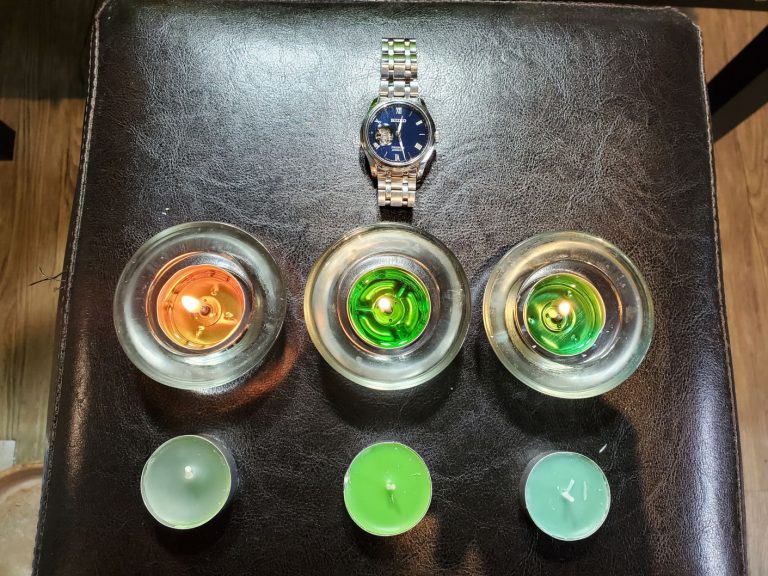Analysis
Update May 17: After having the opportunity to burn all six of the new flavours for a period of time, I have to say that short of the Hedersam freshly cut grass version that was originally tested in the article, most of the new line have little to no scent when burning.
In the cases of the Adlad mint, Enstaka firewood, and Jämlik vanilla ice cream scents in specific, although there is a decent fragrance in the unburned candles, there is somewhere between almost and totally no fragrance emitted during the burn. Instead, the smell of raw soy wax is prevalent, making these something of an expensive, albeit coloured, downgrade to the Glimma unscented version where 100 sell for $6.99 CAD.
As ordinary citizens struggle to survive the tide of inflation, not every manifestation of the economic disorder directly results in higher prices at the till.
In some cases, although the number of coins you need to spend may remain the same, what you cart home is simply less.
Success
You are now signed up for our newsletter
Success
Check your email to complete sign up
Meet IKEA Canada’s new line of tealight candles, which are 6.9 percent shorter, feature a 5.3 percent reduction in diameter, are 16.6 percent lighter, and hold 17.04 percent less wax.
Although shrinkflation is undeniably in play, both the causes and the ultimate result may not be as simple as they appear at first glance.
Highs and lows
As a ritual consumer of IKEA’s scented and unscented tealights since before the government’s response to the Coronavirus Disease 2019 (COVID-19) pseudo-pandemic threw our normal way of life into chaos, I was delighted to discover during my Sunday shopping trip that my favourite scented tealights had been upgraded to six all-new colours and flavours.
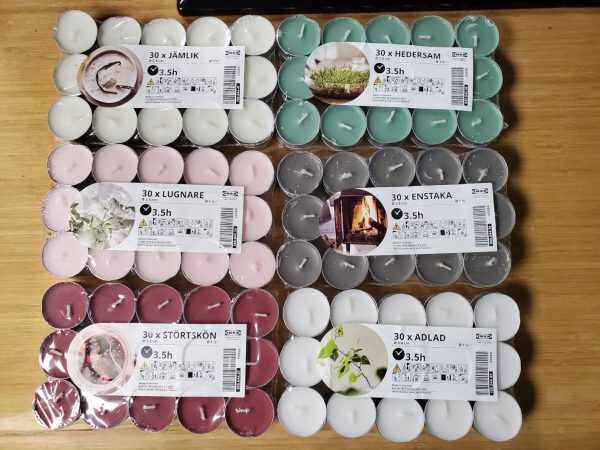
IKEA Canada appears to have replaced the previous Sinnlig scented tealight candle line with six new varieties for us to enjoy:
- Jämlik – A new vanilla ice cream
- Lugnare – A surprisingly accurate rendition of jasmine
- Enstaka – A rustic and smoky firewood theme
- Hedersam – The glory of freshly cut grass
- Adlad – A classic mint motif
- Störtskön – A mixed berry medley
My jubilation, unfortunately, was cut short as I began to place my new found treasures into my bag. I was certain that the upgraded scents and colours were, despite being the same quantity and the same price as the previous Sinnlig generation, misfortunately smaller.
I could tell. I could feel it in my hands.
I could feel it in my heart.
I purchased what I came to purchase all the same and returned home, where a quick comparison confirmed my worst fears: shrinkflation has indeed made landfall in Canada.
But the Devil, as they say, is always in the details.
Show and tell
When comparing the packaging between the new breed and the previous Sinnlig generation, where all five scents were bundled under the same product moniker, a few important items stood out:
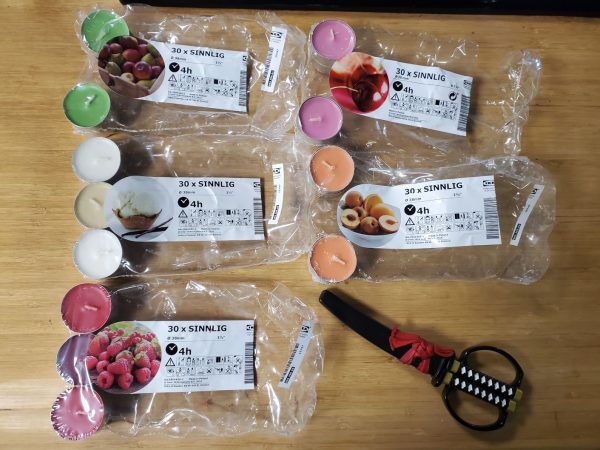
- Sinnlig is made in Poland
- The new generation is made in Vietnam
- Sizing nomenclature changed from 38 mm in Sinnlig to 3.8 cm in the new generation
- Both proclaim themselves to be 1 ½ inches in diameter
- Advertised burn time was reduced to 3.5 hours from 4 hours
It’s worth noting as well that what originally attracted me to the Sinnlig product line is that they were made in the United States.
Over the course of the last year, I noticed that this was slowly phased out at first across some Sinnlig flavours, and then all, in favour of manufacturing in Poland.
Despite the packaging’s prostrations that everything remains the same, it was obvious both to my hands and eyes that the new generation is simply smaller.
Have I been reading too many economic doom conspiracy theory threads on Twitter?
Was it all in my head?
It was time for a good ol’ fashioned science experiment.
Weights and Measures
Fortunately, my basic hand and eye tests are easily communicable to our readers. For this test, we will compare the green apple version of Sinnlig against the fresh cut grass flavoured Hedersam, because it’s spring, and green is a nice colour.
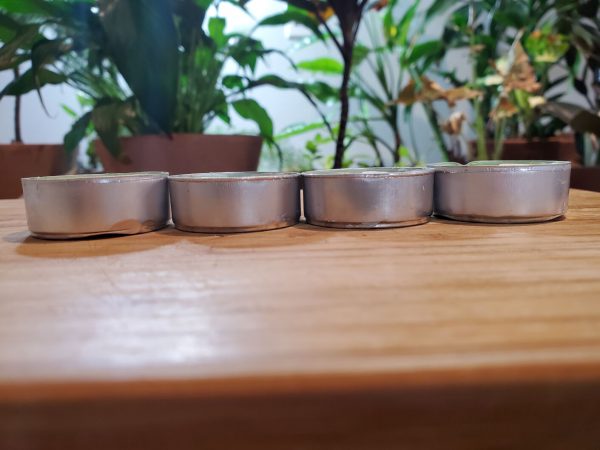
Placing the two side-by-side on a flat surface, one can tell at a glance that the Hedersam are shorter than the Sinnlig.
But how much shorter?
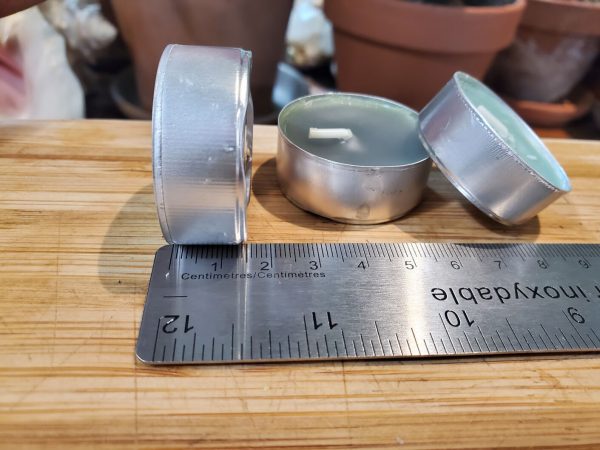
First things first, the caveat to this experiment is I am using a ruler from Dollarama. However, while products made by the Chinese Communist Party and offloaded onto Canadians are not reputed for their high quality and adherence to strict international standards, this one is made of real metal, and seems pretty solid.
Although it’s more difficult than it looks to tip a tealight on its side and measure how wide an irregularly-shaped bottom is with a ruler whose gauge does not start at the edge, I am confident that the measurement comes in fairly at 15 mm.
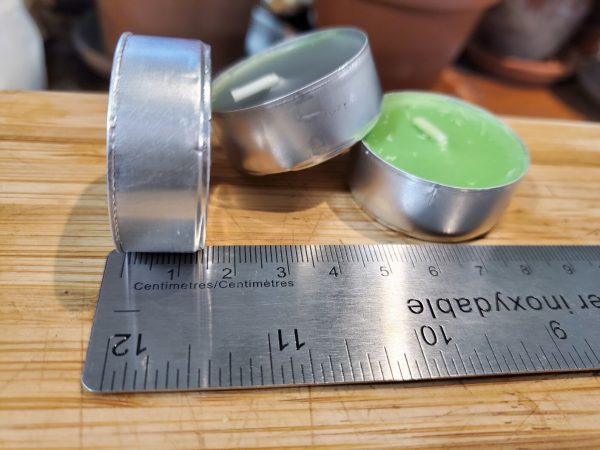
Next up was the new Hedersam scented tealight made in Vietnam. The measurement appears to come in at a clear 14mm.
The difference amounts to a 6.9 percent reduction in height.
This reduction is notably reflected neither on the packaging, nor on the IKEA Canada website.
While the Sinnlig product measurements section accurately states a height of 3 cm (they’re packaged two high), the Hedersam product measurements section states the same figure, which I would argue should be updated to agree with a more accurate 2.8 cm height.
In fairness to IKEA, however, under materials and care, a potential benefit to the consumer is noted. The company states that its new line of tealights are composed of a soy-paraffin blend, whereas Sinnlig is stated to be composed of “paraffin wax, plant-based wax,” which is most likely a paraffin-palm wax blend.
Candles containing soy wax are regarded as more premium and luxurious than candles containing palm wax.
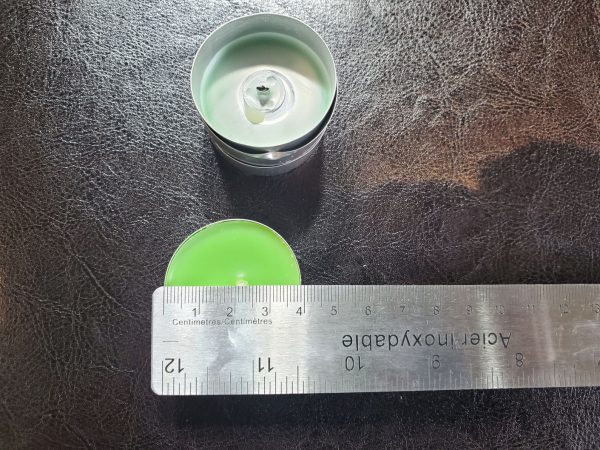
When measuring diameter, the Sinnlig tealights come in at a healthy 39 mm.
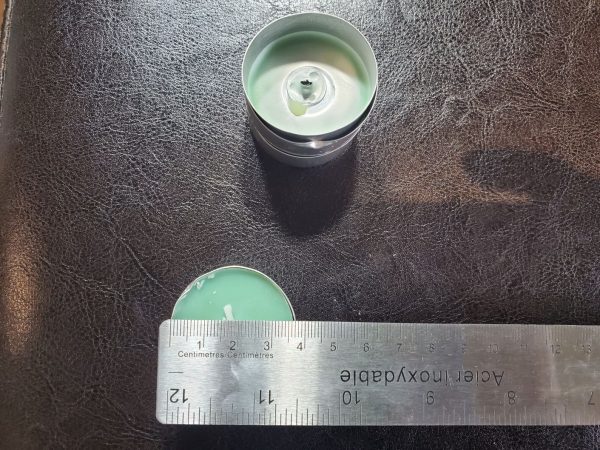
The next generation Hedersam tealight’s diameter measured at 37mm, a 5.26 percent reduction.
Notably, 37 mm equals 1.456 inches while 39 mm equals 1.535 inches, according to Bing, a change once again not reflected accurately in the new generation’s marketing.
Now, to calculate the difference in volume of the cylinder (tealight container), I will use the Omni Calculator website.
- Sinnlig – 39 mm diameter and 15 mm height = 17.92 ml volume
- Hedersam – 37 mm diameter and 14 mm height = 15.05 ml volume
What this shows is that although on first glance it seems that the reduction in Hedersam’s size is “only” 1 mm in height and 2 mm in diameter, these changes result in a 17.4 percent difference in container volume.
To put it into perspective, each package of both Sinnlig and Hedersam contains 30 tealights, meaning a combined package volume of:
- Sinnlig – 537.6 ml or 18.92 imperial fluid ounces
- Hedersam – 451.5 ml or 15.89 imperial fluid ounces
According to calculator website Aqua Calc, one pound of soy wax amounts to 17.04 fluid ounces by volume while one pound of paraffin wax amounts to 16.49 fluid ounces by volume.
Based on an average of the two figures, for every 100 packages of tealights produced, IKEA is saving 18.07 pounds of wax via shrinkflation.
In terms of costs, Canadian retail candle making supply store C&C Candle Company sells IGI 6006 soy-paraffin container wax to the public at a price of $167 CAD for 40 pounds, amounting to $4.18 CAD per pound.
Although what IKEA is paying through its supply chain is undoubtedly remarkably better priced, this figure would amount to $75.53 CAD in wax savings obtained via shrinkflation.
The best price I can find for bulk IGI 6006 is from U.S.-based Lone Star Candle Supply, which offers a pallet of 56 40 pound cases for $4,480 USD, amounting to $2 per pound, or $2.60 CAD at present exchange rates.
This would create $46.98 CAD in wax savings, or 46.98 cents per package.
A difference is also manifested in the weight of the candles. I used IKEA’s own Genomsnitt kitchen scale, which measures to the nearest whole gram, to weigh each candle for reference.
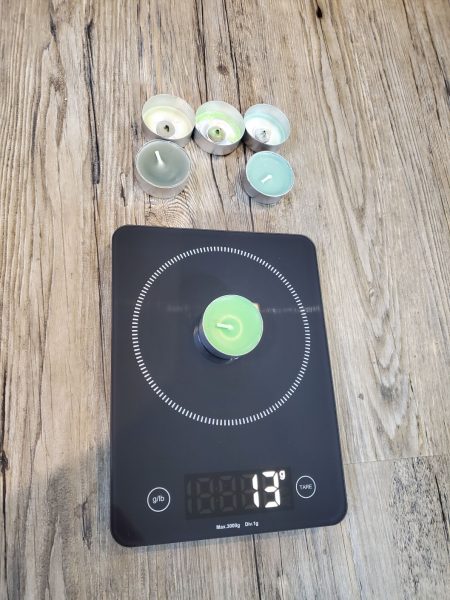
I found that the Sinnlig tealight weighed in at 13 grams.
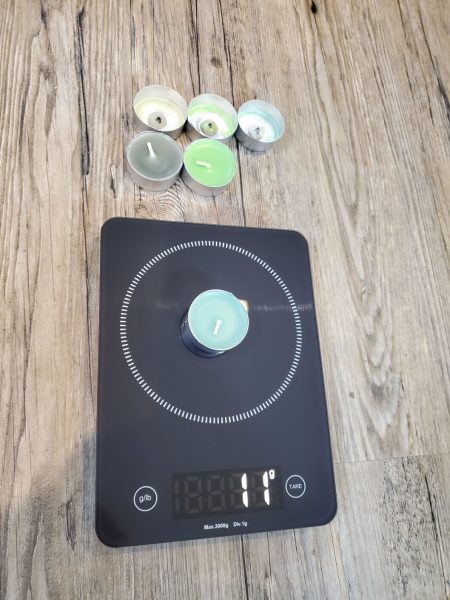
While the Hedersam weighed in at only 11 grams, a 16.6 percent shrinkflation by weight.
Serendipity
In a stroke of good luck, a few weeks ago, I stumbled upon two unopened packages of IKEA tealights at a local thrift store, wasting no time to purchase them after discovering the package was dated 2007.
Enter Tindra, a now-ancient IKEA product line.
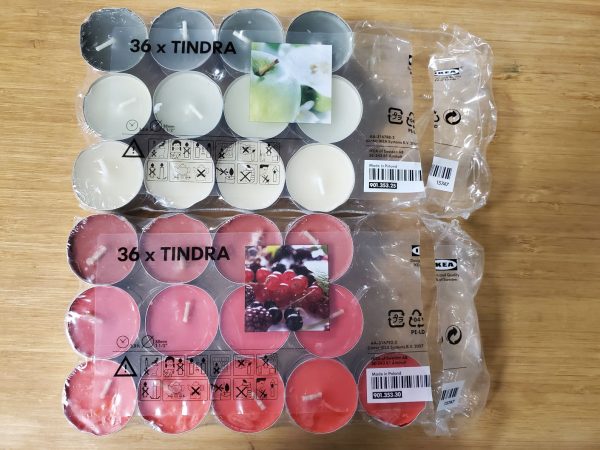
Counting my blessings, I wanted to see how the 2007 model stacked up against the Sinnlig line I am accustomed to and the newly-shrinkflated line recently released.
The first thing to note is Tindra were sold in a package of 36, while Sinnlig and the Hedersam generation are sold in a package of 30.
The second is Tindra, like the new generation, advertises a 3.5 hour burn time.
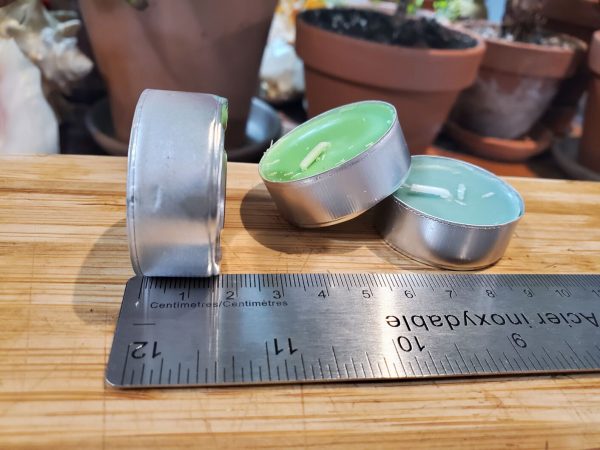
I found that the Tindra model was larger than Sinnlig at 16 mm in height.
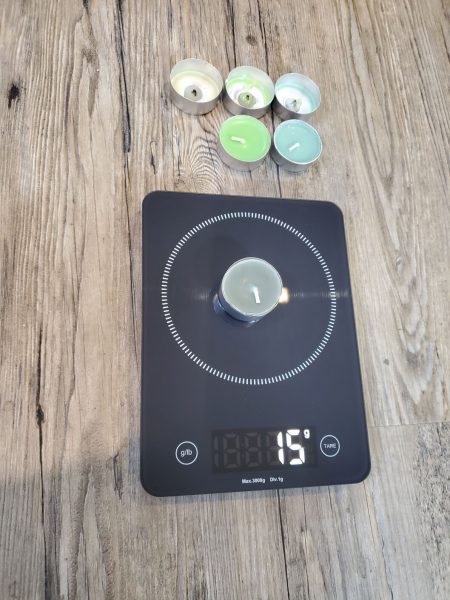
By weight, Tindra is also heavier than both at 15 grams.
Tindra’s diameter is the same as Sinnlig at 39 millimeters.
According to a copy of the 2010 IKEA USA Catalog posted to Issuu, Tindra tea lights sold at the time for $3.99 USD and are also advertised as constructed from a paraffin and plant-based wax.
Off to the races
And now, for the most important part. The new generation of candles are smaller and have a lot less wax, but how do they stack up in terms of performance?
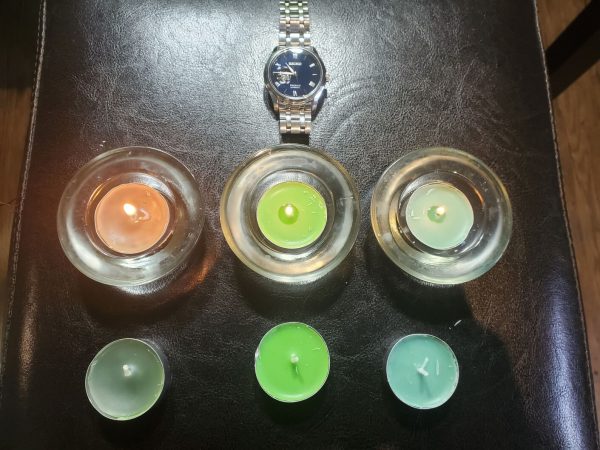
So I conducted a simple experiment using a Tindra, Sinnlig, and Hedersam tealight, three identical tealight holders, and a flat surface, with my Seiko mechanical watch serving as referee.
All three tealights had their wicks trimmed appropriately, were lit within seconds of each other, and generated a healthy flame and melted wax pool.
It should be noted that the new Hedersam generation created a notable scent throw of freshly cut grass in proximity to the candle and cannot be regarded as olfactorily disappointing compared to Sinnlig.
The Tindras, likely because of their age, however, are not noticably fragrant.
To recap, the Sinnlig tealights advertise a 4 hour burn time, while both the Tindra and Hedersam tealights advertise a 3.5 hour burn time.
Starting at 10:45 a.m., the championship began.
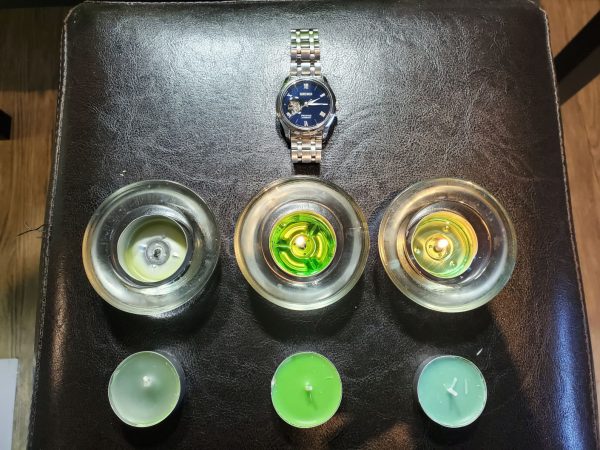
Perhaps surprisingly, yet perhaps unsurprisingly, our first tapout came at approximately 2:15 p.m., after almost exactly 3.5 hours, by the larger 2007 Tindra.
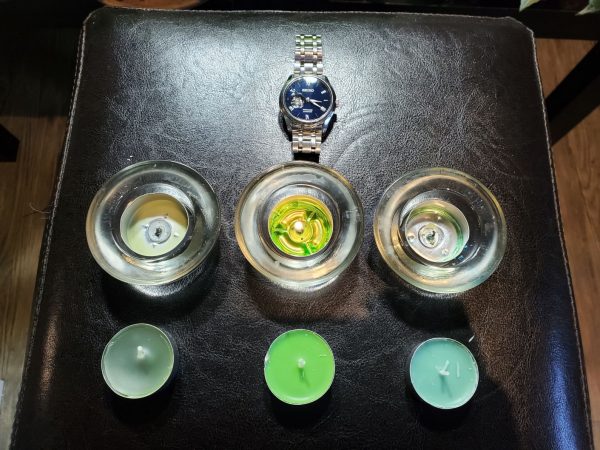
And while it has to be noted that the winner of the competition was the previous generation Sinnlig candle, the new Hedersam was not defeated until 3:20 p.m., or approximately 4.5 hours later, which means it exceeded its promised 3.5 hour burn time.
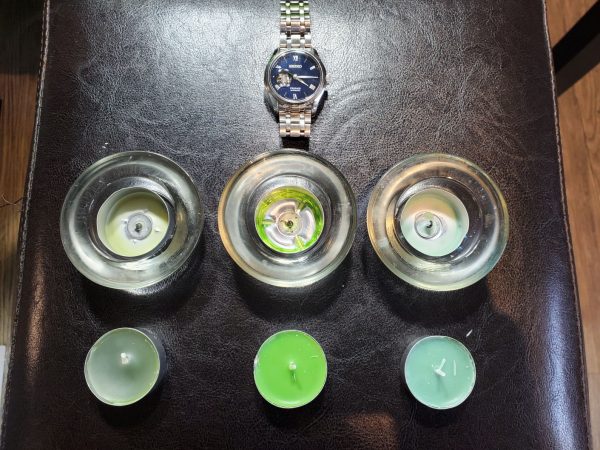
The IKEA Sinnlig candle burned until approximately 4:15 p.m., generating a healthy burn time of 5.5 hours.
Round 2
Since every science experiment requires at least one confirmation, and I had candles to burn, we were off to the races again, this time starting at approximately 7:30 p.m.
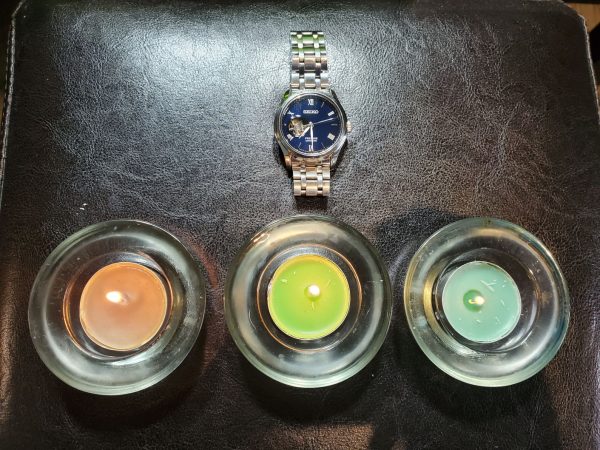
The first to drop out was once again the Tindra tealight at approximately 10:52 p.m., this time falling short of the 3.5 hour advertised burn time.
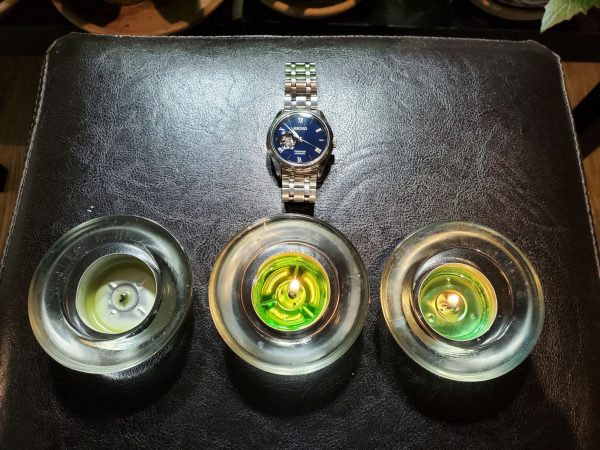
However, the Round 2 race between Sinnlig and Hedersam was a neck-and-neck down to the wire, a photo finish, as Hedersam narrowly defeated Sinnlig by seconds at approximately 12:32 p.m.
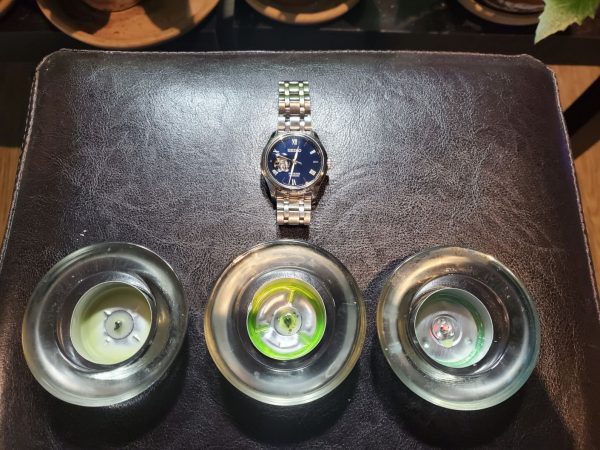
Notably, both candles attained the five hour mark.
All results, including the evident inconsistencies, are consistent with my personal anecdotal experience burning both the Tindras and countless bags of Sinnlig.
Coming into perspective
So, IKEA Canada’s new line of tealights are shorter, smaller, and hold 17 percent less volume than their predecessor.
But on the other hand, they’re partially made of the more-desirable soy wax, have new colours and new scents, and the burn time is plenty healthy.
But at the same time, I paid $4.99 CAD for a candle 17 percent smaller. So, are there other options?
Well, here in Canada at least, the answer is that IKEA is still arguably the best tealight deal in town.
Retailer Canadian Tire offers a series of scented tealights, which are not available on their website but that I did witness in store the other day, in a bag of 25 for a price of $6.99 CAD.
Canadian big box book retailer Chapters Indigo sells a 36-pack of scented tealights for a staggering $29.50 CAD.
The next best option for scented tealights appears to be Walmart, which sells a 30 pack of scented tealights online for $5.97 CAD.
Even comparing unscented tealights, IKEA’s Glimma line, which were recently bumped to $6.99 CAD for a pack of 100 from $5.99 CAD, still beat the Yummi brand tealights sold at Canadian Tire, which retail at $7.99 CAD for 100.
During the 2020 COVID lockdowns, because IKEA shuttered itself, but Canadian Tire did not, I purchased and burned a few bags of the Yummi tealights, which despite being made in Canada, suffered from big time problems with inadequate flame generation from the wick, and the subsequent wax tunneling that comes with it.
Although Real Canadian Superstore sells 100 unscented tealights at a price of $5 CAD, they appeared to be at least half the height of the IKEA and Yummi versions.
However, Superstore also sells a package of 50 unscented tealights for $8.99 CAD, which could be argued is something of an alternative, but only because they’re larger and boast an 8-hour burn time, which I have found in my experience to be accurate.
The downside is, eight hours is a long time to burn a candle, and not always desirable.
A consumer’s choice
Facing the ever rising tide of inflation, including shrinkflation, consumers have choices.
I reached out to IKEA for comment before publishing this article, but did not receive a response.
On the one hand, I think it’s certainly amicable that IKEA managed to find a way to keep the cost to consumers the same while simultaneously making a tealight that burned the same duration as the previous generation.
It also should be classified as good that IKEA managed to make Sinnlig longer despite being smaller than the 2007 Tindra, and I also think that from one angle, it is good that IKEA can manage to reduce the amount of plant and petroleum wax used in its Hedersam generation while producing a similar burn time.
But on the other hand, the taste that 17 percent less candle for the same price leaves in my mouth is certainly bitter.
However, consider that Inter IKEA Group’s 2021 Financial Results show that although overall sales increased from €22.387 billion in FY 2020 to €24.282 billion in FY 2021, IKEA actually made less money.
In 2021, IKEA posted €1.433 billion in total profits compared to €1.731 billion the year prior.
The difference, the data shows, lies in the cost of goods sold column, which increased to €21.137 billion in 2021 from €18.860 billion in 2020.
IKEA stated, “Raw material prices increased dramatically in the second half of FY21 following an unfavourable combination of scarcity and high demand. This resulted in higher purchasing costs in FY21.”
And continued, “In addition, transport costs went up due to the limited availability of containers and carriers as a result of the pandemic.”
Importantly, the company stated, “To support low prices to customers in accordance with our affordability ambition, Inter IKEA Group did not increase wholesale prices to the IKEA franchisees, which led to a lower gross margin.”
So as a consumer, although shrinkflation has made a crater in my backyard, IKEA’s tealights are still pretty good, and still arguably the best value on the Canadian market.
However, while I may still consider downgrading from scented tealights to the Glimma unscented tealights, in addition to simply reducing the frequency with which I consume the products, because I think it’s amicable that IKEA made an effort to keep quality high and costs down, I will make an effort to continue to support them with my business during this time of rising producer prices and the shrinkflation that comes with it.



